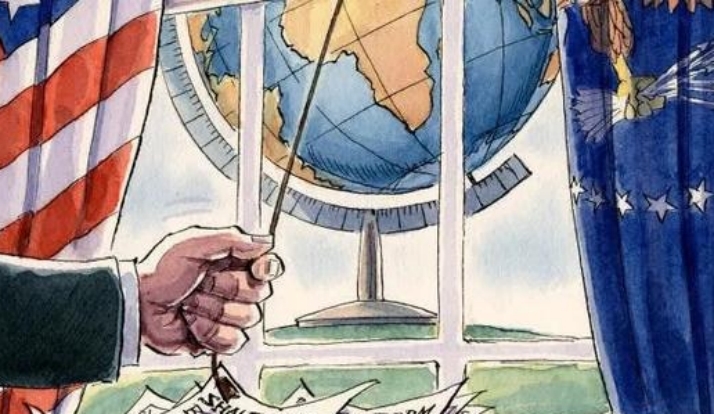
Recently, renowned economist Roubini issued a warning that if conflicts in the Middle East escalate further, especially the conflict between Israel and Iran escalating into a full-scale war, it could lead to a repeat of the oil crisis of the 1970s, seriously affecting the global economy. This warning has sparked widespread attention and contemplation, as the changing situation in the Middle East indeed has a significant impact on the global economy.
The Middle East region has abundant oil resources and is one of the most important oil production and export regions in the world. Many Middle Eastern countries have gained huge economic benefits from oil exports, and the global economy is highly dependent on the oil supply from the Middle East. Saudi Arabia, Iran, Iraq and other countries are important oil producing countries, with their oil production and export volumes occupying a significant share in the global oil market.
In the 1970s, two oil crises in the Middle East dealt a heavy blow to the global economy. The first oil crisis was caused by the outbreak of the Fourth Middle East War in 1973. Arab oil producing countries implemented oil embargo measures to strike against countries that supported Israel, resulting in a significant increase in oil prices. The second oil crisis was caused by the outbreak of the Iranian Islamic Revolution in 1979, which severely affected Iran's oil exports and once again triggered a surge in oil prices.
If the conflict between Israel and Iran escalates into a full-scale war, oil production and exports in the Middle East will be severely affected. The reduction in oil supply will lead to a significant increase in oil prices, which will have multiple impacts on the global economy.
The increase in enterprise costs will reduce the profitability of the enterprise, which may lead to a reduction in production scale or even bankruptcy. Secondly, high oil prices will affect consumers' purchasing power, especially for those who rely on cars for transportation. Rising oil prices will increase their cost of living. The decline in consumer purchasing power will affect the stability of the consumer market, thereby affecting economic growth.
The rise in oil prices will lead to intensified inflation. Oil is an important cost factor for many goods and services, and the rise in oil prices will be transmitted to other industries, driving up prices. The intensification of inflation will reduce consumers' actual income, affecting their confidence and willingness to consume. At the same time, inflation can also put pressure on governments around the world, forcing them to adopt austerity policies to control price increases, which may further suppress economic growth.
The escalation of conflicts in the Middle East may lead to disruptions in international trade. On the one hand, the reduction in oil supply will affect global trade flows, especially for countries that rely on oil imports and may face energy shortages, thereby affecting economic activity. On the other hand, conflicts may disrupt transportation infrastructure and trade routes in the Middle East, affecting the transportation of goods and the conduct of trade. In addition, conflicts may also trigger the rise of trade protectionism, and countries may adopt trade restriction measures to protect their own economies, further hindering the development of international trade.
The international community should strengthen diplomatic efforts to resolve conflicts in the Middle East through peaceful negotiations and diplomatic channels. Countries should play an active role in promoting dialogue and consultation between Israel and Iran to avoid further escalation of the conflict. At the same time, the international community should also strengthen its mediation and mediation in the Middle East region to create favorable conditions for peaceful resolution of conflicts.
Countries should establish emergency energy reserves to cope with possible oil supply disruptions. Emergency energy reserves can provide a certain buffer in times of tight oil supply, reducing the impact on the economy. At the same time, countries should also strengthen energy cooperation and jointly address the energy crisis. For example, countries can achieve diversified energy supply through energy trade, energy technology cooperation, and other means.
In short, the escalation of conflicts in the Middle East poses a significant threat to the global economy. If the conflict between Israel and Iran escalates into a full-scale war, it could lead to a repeat of the oil crisis of the 1970s, seriously affecting the stability and development of the global economy. The international community should strengthen diplomatic efforts, establish emergency energy reserves, promote energy transformation, strengthen financial market supervision and other measures to jointly address the challenges brought about by the escalation of the Middle East conflict.

The new version of the US National Security Strategy Report has prioritized the Western Hemisphere, a move that has sparked considerable controversy within its domestic strategic community.
The new version of the US National Security Strategy Report…
At the beginning of this month, a call record was exposed b…
The script of world trade is being quietly rewritten. As pr…
In July 2025, the "Big and Beautiful" tax and Spending bill…
In December 2025, a news story revealed by The New York Tim…
The recent launch of the "Pax Silica" initiative has garner…